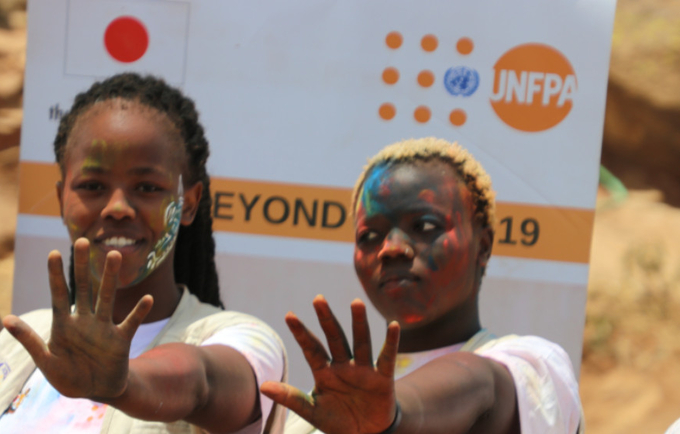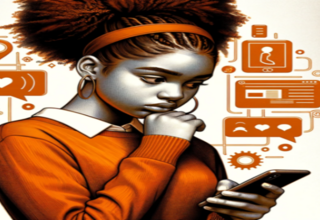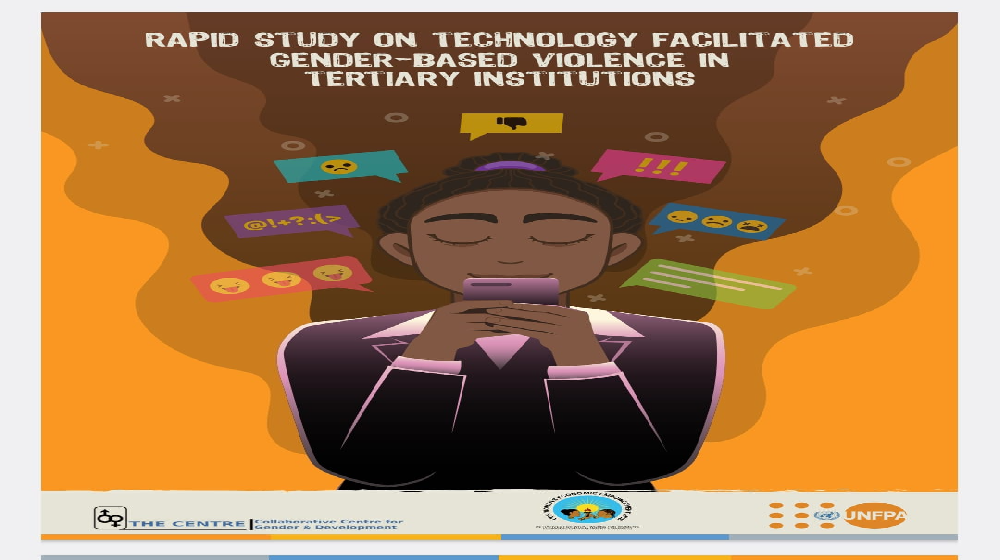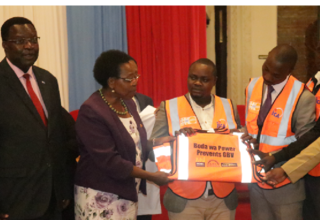The onset of the Covid-19 pandemic nearly three years ago led to an 87% increase in gender-based violence cases across Kenya. In the Kibera informal settlement located on the outskirts of Nairobi, the risk of GBV was heightened by existing poverty, made worse by the ensuing job losses that left many women dependent on their partners for support. Lockdown measures including movement restrictions and curfews also left many women and girls unable to access critical sexual and reproductive health care, including support for survivors of gender-based violence.
With support from the government of Japan, UNFPA has partnered with Reach Alternatives and the Kenya Red Cross to help communities in Kibera build back better from the pandemic by enhancing their ability to prevent and respond to gender-based violence. Through the “Hope Beyond Covid-19” project, institutions such as local health facilities are also being equipped to better attend to the sexual and reproductive health needs of women and girls during crisis and emergency situations.
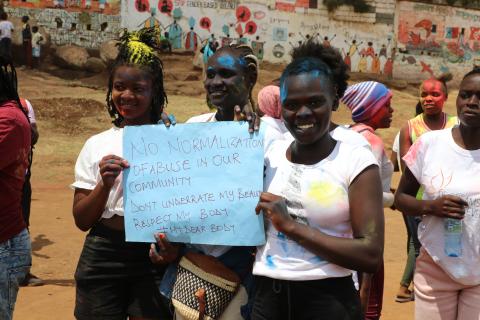
Recently, more than 150 residents of Kibera gathered at the Lindi Mkude grounds, an area identified as a hotspot for gender-based violence, to learn more about self-care strategies that can aid in the prevention and response to gender-based violence in the community. The event dubbed “Color Fest” deployed art as a therapeutic activity to encourage community members to learn new ways of expressing their emotions and communicate in order to understand the root causes and factors contributing to the high cases of GBV. Participants took the opportunity to paint awareness messages on ending gender-based violence and to share personal stories on overcoming GBV, through body paint.
The event also presented an opportunity to share information on resources available for survivors and those at risk, such as nearby shelters, helplines, and first responders available to help women and girls in need of assistance. “Cases of sexual violence and defilement are particularly high in the Lindi area, and they often go unreported as residents prefer to use Kangaroo courts to resolve the matter,” says community health volunteer and GBV champion Sarah Dafala. “Through this festival, we have been able to sensitize the community on the importance of reporting such cases to authorities, and the right channels to use.”
In addition to raising awareness, the “Hope Beyond Covid-19” project also aims to educate community responders on the provision of referral services for women in need of sexual and reproductive health and GBV services. Safe spaces within two health facilities in Kibera will also be renovated and equipped to provide mental health and psychosocial support to survivors of gender-based violence. The project will also equip women and girls with income-generating skills that will enable them to engage in viable businesses, thereby reducing their vulnerability to gender-based violence.
